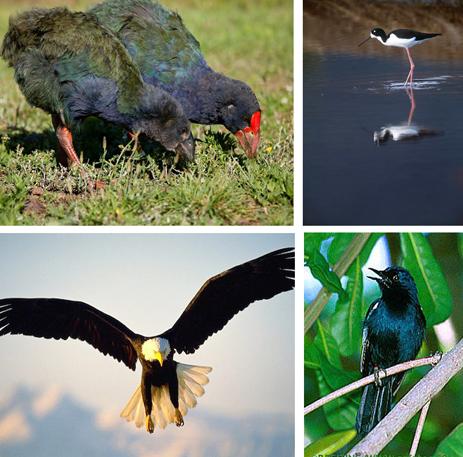Modern insecticides' devastating effects
Like DDT before it, a new class of insecticides known as neonicotinoids is believed to be causing drastic population declines in bird species. It is so effective at killing insects, that it has deprived birds of their basic food.
Some scientists also believe they are behind the decline in bee populations in Europe and the United States known as honey-bee Colony Collapse Disorder.
Neonicotinoids, which are part of the nicotine family, are essentially glued to plant seeds, and infiltrate the entire plant. Any bug that eats the plant is immediately infected. The toxin attacks the central nervous system and causes a quick death. It is much less toxic to other animals because the chemical blocks a specific neural pathway found more commonly in insects.
Henk Tennekes, researcher at the Experimental Toxicology Services in Zutphen, the Netherlands, has linked the use of neonicotinoids to declines in bird populations in his recent book, The Systemic Insecticides: A Disaster in the Making. Tennekes said, "The evidence shows that the bird species suffering massive declines since the 1990s rely on insects for their diet." It is also accused of causing the alarming decline in bee populations. Researchers have found that the chemical negatively affects the bee's navigational ability which in turn, causes the bees to neglect feeding and caring for eggs and larvae.
However, the true cause of Colony Collapse Disorder is not fully understood. Other possible factors include Varroa mites, insect diseases, malnutrition, genetically modified crops, and even cell phone radiation. Nevertheless, countries like Germany and France have strictly limited the use of neonicotinoids. In Germany, it is believe that the glue did not sufficiently hold the chemical to the seeds of agricultural crops. The chemical could then drift into the environment where it affected bees.
The effectiveness of this pesticide has certainly taken a toll on insects, but has taken a much more noticeable toll on birds. In Britain, the house sparrow population has declined by 68 percent since 1977. Since 1994, the common swift population has shrunk by 41 percent and the starling by 26 percent. Other birds affected include the spotted flycatcher, wood warbler, snipe, and song thrush.
Neonicotinoids are used on a level far lower than DDT was used back in its time, but since it is so efficient at killing insects, it is having the same effect. For that reason, it is loved by farmers in protecting their crops. The chemical also makes the plants more resistant to drought, low pH levels, heat stress, and viral infections.
More research is needed to conclusively link neonicotinoids to avian declines. Regardless, some European countries have taken small steps to limit its use. However, Henk Tennekes believes that a global ban is the only solution. "Neonicotinoids act like chemical carcinogens, for which there are no safe levels of exposure. The message is that we must act quickly and ban these compounds, to avoid a catastrophe."
 0
0 







